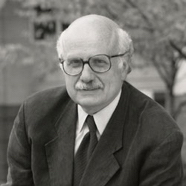The Trump Coup That Could Have Succeeded
Fred Wertheimer’s Weekly Note | December 22, 2022
 On November 4, 2020 — one day after Election Day 2020 — Rick Perry, Trump’s Energy Secretary, contacted White House Chief of Staff Mark Meadows with a proposal. Perry proposed an “AGRESSIVE [sic] STRATEGY” to have Republican-controlled state legislatures in key battleground states override the voters and send their own Trump electors to Congress.
On November 4, 2020 — one day after Election Day 2020 — Rick Perry, Trump’s Energy Secretary, contacted White House Chief of Staff Mark Meadows with a proposal. Perry proposed an “AGRESSIVE [sic] STRATEGY” to have Republican-controlled state legislatures in key battleground states override the voters and send their own Trump electors to Congress.
The next day, Donald Trump Jr. made the same recommendation to Meadows.
(An excellent timeline of how all this unfolded was prepared this summer by Just Security.)
By the end of November, John Eastman, a Trump lawyer, had sketched out the scheme in a memo he titled, “The Constitutional Authority of State Legislatures to Choose Electors.”
Central to the Trump/Eastman plot being successful was a glaring loophole in the antiquated 19th-century Electoral Count Act that opened the door for state legislatures to override their voters and choose their own presidential electors.
The Constitution empowers the U.S. Congress to determine when the choice of presidential electors takes place. Congress exercised this power by establishing that electors will be chosen on the first Tuesday after the first Monday in November — Election Day.
If voters have chosen presidential electors on Election Day, state legislatures are prohibited by federal law from overriding the voters’ choice after the election. (This doesn’t mean you have to know the winner on Election Day, only that the presidential electors were chosen by voters on Election Day.)
But there is an exception in the law: if voters “fail” to make a choice on Election Day, then state legislatures can choose their own electors.
This “failed choice” exception was intended to deal with the difficulties of 19th-century voters getting to the polls on Election Day because of extreme weather or other types of natural disasters.
But the exception also left room for a state legislature to simply claim, without any evidence, that voter fraud had occurred. The state legislature could then claim the voters failed to make a choice on Election Day and send their own presidential electors to Congress.
That was central to the Trump plan being claimed as legal.
The pivotal moment in this attempted coup occurred in early January 2021. Jeffrey Clark, the Acting Assistant Attorney General for the Civil Division and a Trump agent, drafted a letter that would come from the Justice Department and be sent to Republican battleground state legislatures.
The draft letter falsely stated that DOJ had “identified significant concerns that may have impacted the outcome of the election in multiple states.” The letter then suggested the legislatures call special sessions and stand ready to substitute their choice of electors for the choice made by the voters.
They could use the “failed choice” exception to justify their position.
When Acting Attorney General Jeffrey Rosen and Acting Deputy Attorney Richard Donoghue refused to sign the letter, Trump tried to make Clark Acting Attorney General so he could send the letters instead.
Trump ultimately backed off when Rosen and Donoghue told him the entire DOJ leadership would resign if he did.
But for Rosen and Donoghue, Trump and Eastman might have pulled this off.
Democracy 21 has been working since the summer of 2021 to close this dangerous loophole. Other groups, including Protect Democracy and the Campaign Legal Center, have worked hard on this effort.
The Electoral Count Reform Act (ECRA), included in Congress’s omnibus spending bill, eliminates the “failed choice” loophole by narrowly defining “failed choice” to be limited to extreme force majeure such as an earthquake, flood, or other natural disaster.
But even in those circumstances, the measure eliminates the ability of a state legislature to choose the electors. Instead, it would require the presidential election in that state to take place at a later date.
The omnibus spending bill, including the ECRA, was approved by the Senate on Thursday and is expected to be passed by the House on Friday and enacted.
While Trump’s effort to steal the presidency was unsuccessful, it was a stark warning of what could happen in future presidential elections.
The Electoral Count Reform Act has other important provisions to strengthen the rules for counting electors in Congress. But, by closing this dangerous loophole in the Electoral Count Act, Congress will help ensure that a Trump-like effort to steal a presidential election will not be successful in the future.
________________________
Fred’s Weekly Note appears each Thursday in Wertheimer’s Political Report, a Democracy 21 newsletter. Read this week’s and other recent newsletters here. And, subscribe for free here and receive your copy each week via email.